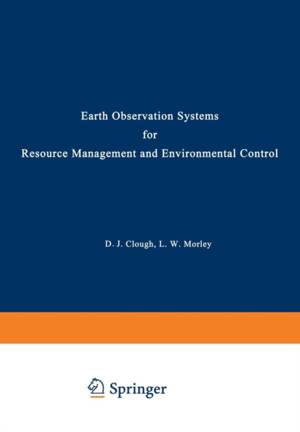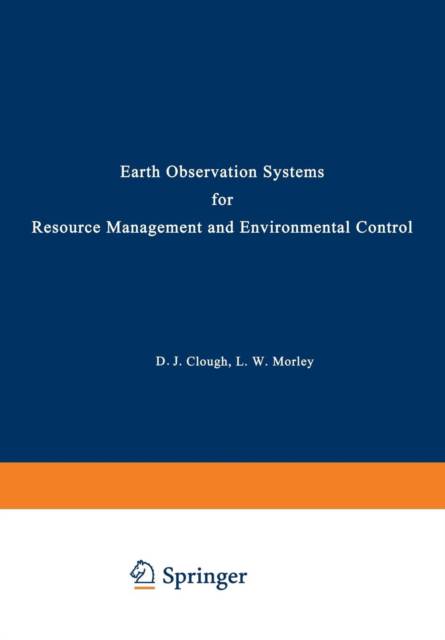
Bedankt voor het vertrouwen het afgelopen jaar! Om jou te bedanken bieden we GRATIS verzending (in België) aan op alles gedurende de hele maand januari.
- Afhalen na 1 uur in een winkel met voorraad
- In januari gratis thuislevering in België
- Ruim aanbod met 7 miljoen producten
Bedankt voor het vertrouwen het afgelopen jaar! Om jou te bedanken bieden we GRATIS verzending (in België) aan op alles gedurende de hele maand januari.
- Afhalen na 1 uur in een winkel met voorraad
- In januari gratis thuislevering in België
- Ruim aanbod met 7 miljoen producten
Zoeken
Earth Observation Systems for Resource Management and Environmental Control
€ 106,95
+ 213 punten
Omschrijving
The NATO Science Committee and its subsidiary Programme Panels provide support for Advanced Research Institutes (ARI) in various fields. The idea is to bring together scientists of a chosen field with the hope that they will achieve a consensus on research direc- tions for the future, and make recommendations for the benefit of a wider scientific community. Attendance is therefore limited to those whose experience and expertise make the conclusions significant and acceptable to the wider community. Participants are selected on the basis of substantial track records in research or in the synthesis of research results to serve mankind. The proposal for a one-week ARIon Earth Observation and In- formation Systems was initiated by the NATO Special Programme Panel on Systems Science (SPPOSS). In approving the ARI, the senior NATO Science Committee identified the subject as one of universal impor- tance, requiring a broad perspective on the development of opera- tional systems based on successful experimental systems. The general purpose of this ARI was to address the critical problems of integrating the relatively new science and technology of remote sensing into operational earth observation and manage- ment information systems. The main problems of concern were those related to systems design, organization, development of infrastruc- ture, and use of information in decision processes. The main empha- sis was on problems of transferring technologies and methods from experimental to operational systems.
Specificaties
Betrokkenen
- Uitgeverij:
Inhoud
- Aantal bladzijden:
- 475
- Taal:
- Engels
- Reeks:
Eigenschappen
- Productcode (EAN):
- 9781461588665
- Verschijningsdatum:
- 27/12/2012
- Uitvoering:
- Paperback
- Formaat:
- Trade paperback (VS)
- Afmetingen:
- 170 mm x 244 mm
- Gewicht:
- 780 g

Alleen bij Standaard Boekhandel
+ 213 punten op je klantenkaart van Standaard Boekhandel
Beoordelingen
We publiceren alleen reviews die voldoen aan de voorwaarden voor reviews. Bekijk onze voorwaarden voor reviews.








